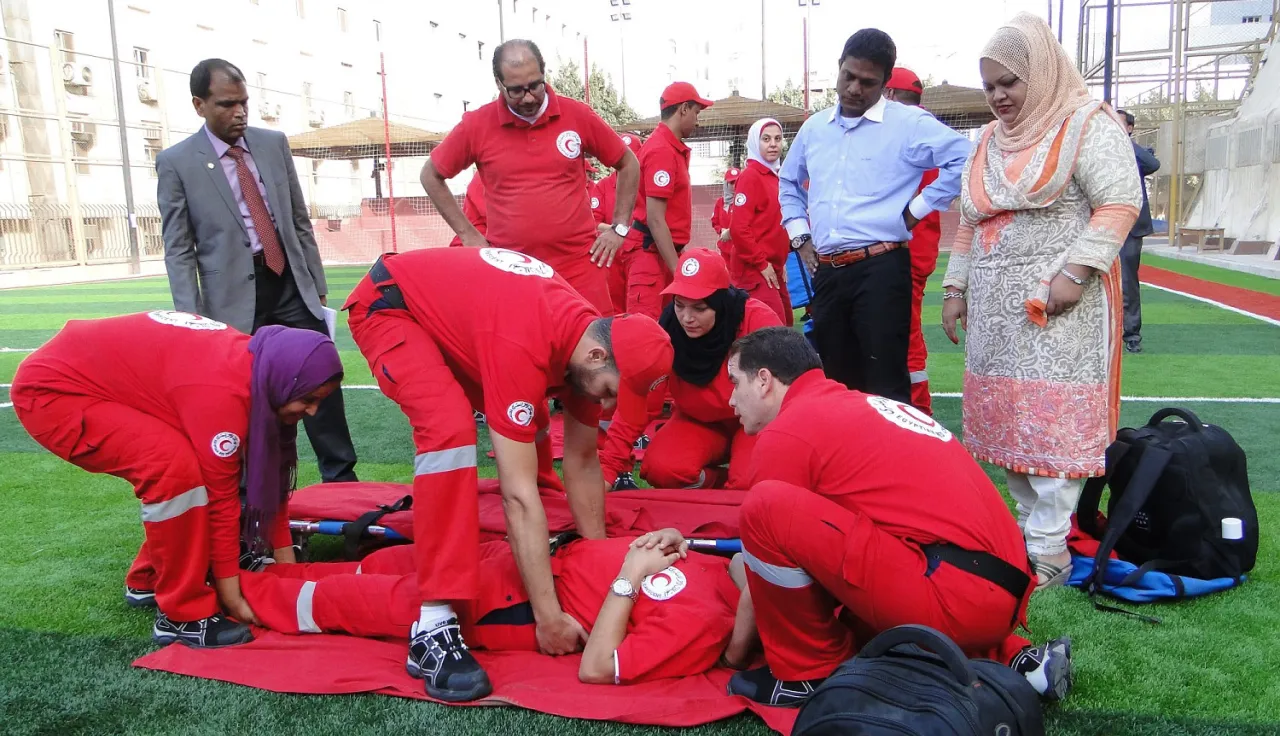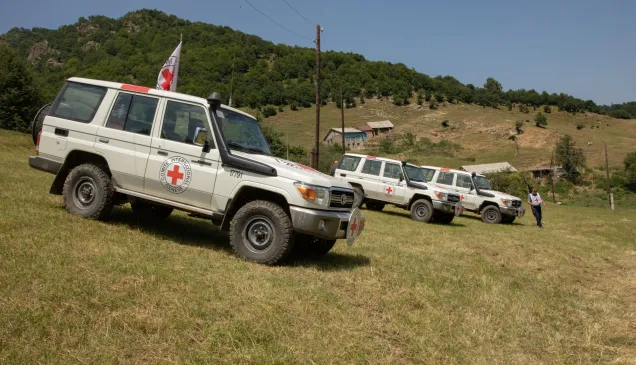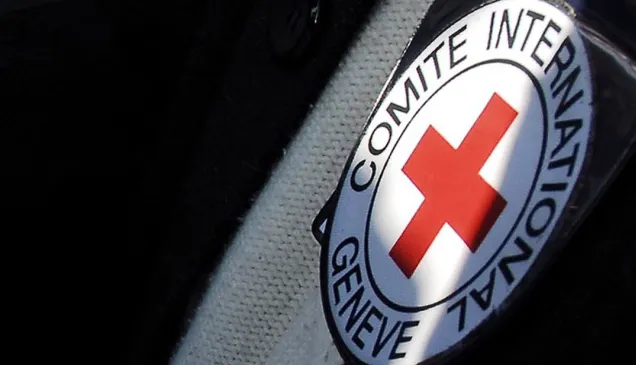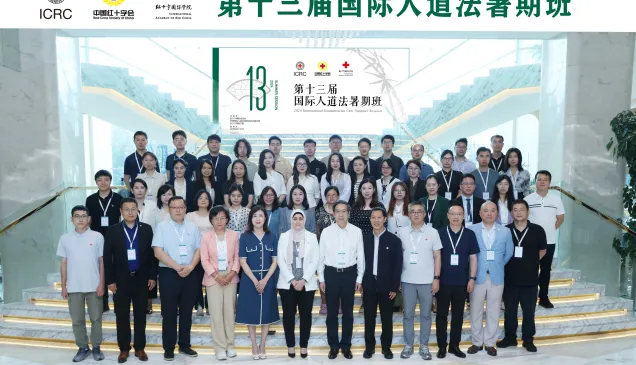Bangladesh: Red Crescent study visit in Egypt

"The Egyptian Red Crescent and the Bangladesh Red Crescent have faced similar challenges, such as acceptance issues and resistance within the National Society to a new concept of emergency service," said Md. Belal Hossain, director of the Bangladesh Red Crescent's Disaster response department. "On this study tour we learned a lot from the Egyptian Red Crescent about how to overcome those problems and expand services."
In Cairo, the Bangladesh Red Crescent staff attended a number of exercises carried out by the Egyptian Red Crescent. Each scenario was followed by a debriefing, where the two National Societies could share experiences and take notes from each other. There was also ample opportunity for exchanges with Egyptian Red Crescent volunteers, trainers and leaders.
"One of the things we learned about was the 'safe exit' concept, which was totally new to us," said H.M. Salauddin, secretary of the Bangladesh Red Crescent Chittagong city unit. "It is really very important to have not only safe access but also a safe exit from a risk spot."

Q&A session during Bangladesh Red Crescent visit. ©Egyptian Red Crescent
In October 2013 the Bangladesh Red Crescent and the ICRC initiated a project to respond to the political manifestations which very often turn violent. Bangladesh Red Crescent staff and volunteers in Dhaka were trained and equipped to provide emergency care to the wounded. After this initial experience, the Red Crescent formed additional teams in Chittagong which took action in the hartals (general shutdowns) during the election period from October 2013 to January 2014. Since then, the Bangladesh Red Crescent has been mobilizing first-aid workers and ambulances whenever hartals are announced.
"What we learned in Egypt will help us in the future in our own country," said Razia Sultana Luna, a member of the managing board of the Bangladesh Red Crescent. "We need to enhance the team and volunteer selection process. We also have to work on standardizing equipment, uniforms and means of identification."
"Most of all, we want to invest a lot in training – not only to develop skills but also to emphasize safety issues," said Mohammad Rezaul Karim, the Bangladesh Red Crescent's deputy director of international relations. "Just as the Egyptian Red Crescent enhanced its image as a neutral humanitarian organization providing services in situations of violence, we can do the same."
Based on the experience gained throughout the election period and during the study visit to Egypt, the Bangladesh Red Crescent is planning to further improve its services and to extend these activities in other cities also affected by violence.



